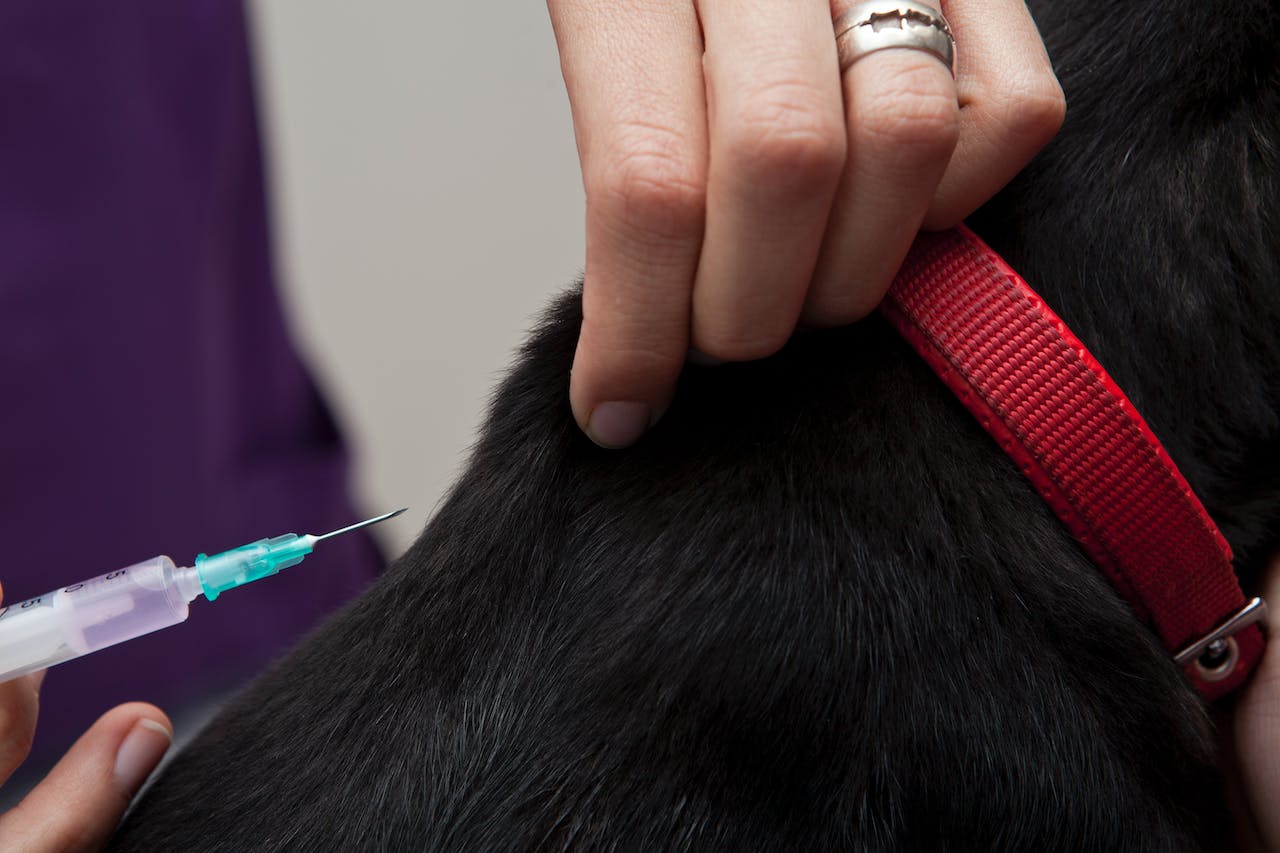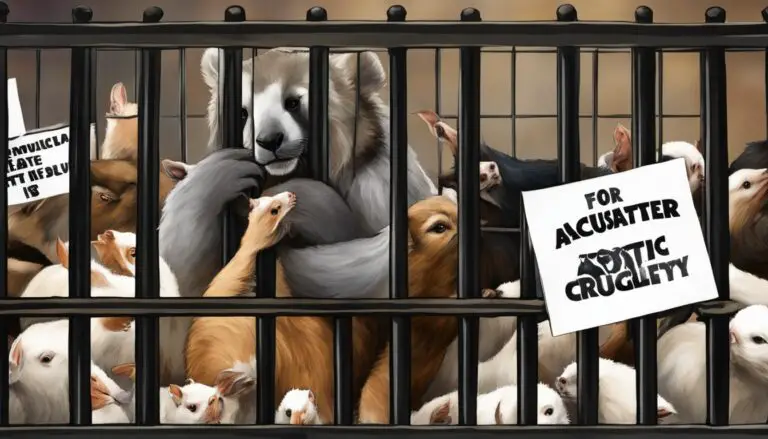Exotic Pet Vaccination Laws in the US Explained
In the United States, there are specific vaccination laws and requirements for exotic pets, including uncommon species that are not traditionally kept as pets. These laws aim to protect the health of both the animals and the human population by preventing the spread of diseases. It is important for exotic pet owners to understand and comply with these laws to ensure the well-being of their unique companions.
Exotic pet vaccination laws vary from state to state and often cover animals such as dogs, cats, ferrets, and other non-traditional pets. The administration of vaccines for these pets is typically done by a licensed veterinarian or an authorized representative. Proof of vaccination is required, usually in the form of a certificate issued by the appropriate health department.
While there are general guidelines for vaccinating dogs, cats, and ferrets against rabies, vaccination requirements for other exotic animals may not be as well-defined. The specific laws on vaccinating unique pets can vary, and it is important for exotic pet owners to be aware of the regulations in their state and consult with a veterinarian who specializes in exotic animals.
Key Takeaways:
- Exotic pet vaccination laws and requirements vary by state in the United States.
- Vaccination is typically administered by a licensed veterinarian or an authorized representative.
- Proof of vaccination, in the form of a certificate, is required.
- Laws may have exceptions for animals with health conditions that make vaccination dangerous.
- Exotic pet owners should consult their state’s regulations and work with a veterinarian who specializes in exotic animals.
Vaccination Laws for Dogs, Cats, and Ferrets
In many states across the United States, there are specific vaccination laws in place for dogs, cats, and ferrets. The primary focus of these laws is to protect against the spread of rabies, a deadly viral disease that can affect both animals and humans. Rabies vaccinations are typically required for these pets due to the significant public health risks associated with the disease.
The age at which vaccination is required may vary by state, but the general guideline is around 3 months old. This ensures that pets are vaccinated at a young age before they may come into contact with potentially infected animals or environments.
The frequency of rabies vaccination is determined by the state health board, with most states requiring a booster vaccination every 1-3 years. This helps to ensure that pets maintain adequate protection against rabies throughout their lives.
To comply with vaccination laws, pet owners must have their dogs, cats, and ferrets vaccinated by a licensed veterinarian, a rabies officer, or an authorized representative. These professionals have the necessary training and qualifications to administer the vaccines safely and effectively.
Proof of vaccination is required, and pet owners are usually provided with a printed certificate by the health department or the administering veterinarian. This certificate serves as documentation of the pet’s vaccination status and may be requested by various entities, such as animal control agencies or boarding facilities.
It’s important to note that some states may provide exemptions to vaccination if it would be injurious to the animal’s health. These exemptions are typically granted on a case-by-case basis and require a certificate issued by a veterinarian.
Benefits of Vaccinating Dogs, Cats, and Ferrets
Vaccinating dogs, cats, and ferrets against rabies has several benefits:
- Protection for pets: Vaccines help to protect pets from the deadly disease, ensuring their health and well-being.
- Public health: Vaccinating pets reduces the risk of rabies transmission to humans, safeguarding the community from this zoonotic disease.
- Legal compliance: By adhering to vaccination laws, pet owners avoid potential penalties and ensure that their pets are in line with legal requirements.
- Pet care facilities: Many pet care facilities, such as boarding kennels and grooming salons, require proof of rabies vaccination for pets to be admitted. Complying with vaccination laws ensures access to these services.
Vaccinating dogs, cats, and ferrets against rabies is crucial not only for the health and safety of these pets but also for the well-being of humans. By following vaccination laws and ensuring that our pets are protected, we contribute to the overall public health of our communities.
Vaccination Laws for Other Exotic Animals
Vaccination laws for other exotic animals can vary from state to state, encompassing a wide range of species. While the specific requirements may not be as well-defined as those for dogs, cats, and ferrets, they are put in place to prevent the spread of disease and protect the health of both animals and the human population.
If you own a unique pet, it is crucial to consult your state’s regulations or speak with a veterinarian who specializes in exotic animals. They will be able to provide guidance on the vaccination requirements for your beloved companion. By adhering to these vaccination laws, you can ensure the well-being of your pet and contribute to public health.
Challenges of Vaccinating Exotic Animals
Vaccinating exotic animals comes with its own set of unique challenges. Unlike domestic animals, these species may not have vaccines specifically designed for them, making the vaccination process more difficult. Additionally, the effects of vaccines in exotic animals are often not well-studied, leading to uncertainty about their efficacy and safety. Vaccination protocols for exotic species are typically based on limited published information and the relative risk of the disease.
One of the main challenges is that some exotic species may not have a strong immune response to vaccines. This can result in a lack of seroconversion, meaning that the animal may not develop sufficient immunity to the disease they are being vaccinated against. As a result, they could remain at risk for the disease despite being vaccinated.
In light of these challenges, it is crucial for veterinarians and exotic pet owners to carefully consider the risks and benefits of vaccination for each individual animal. A thorough assessment of the animal’s health status, potential exposure to diseases, and the prevalence of those diseases in their environment should be taken into account. This will ensure that the vaccination process is tailored to the specific needs of the exotic pet, minimizing any potential complications.
“The vaccination of exotic animals requires careful consideration and expertise due to the unique challenges they pose. It is essential to have a thorough understanding of each species’ vaccination requirements and potential risks to ensure the health and well-being of these unique companions.”
Vaccination Challenges for Exotic Pets
Exotic pets present a wide range of challenges when it comes to vaccination. Here are some of the key difficulties encountered:
- Limited availability of vaccines designed specifically for exotic species
- Lack of comprehensive research on the effects of vaccines in exotic animals
- Variable immune responses, leading to a potential lack of seroconversion
- Unique anatomical and physiological factors that may affect vaccine efficacy
- Unpredictable interactions between vaccines and exotic species
These challenges highlight the need for specialized veterinary care and individualized vaccination protocols for exotic pets. By addressing these complexities, veterinarians can ensure the best possible protection against diseases while minimizing the risks associated with vaccination.
| Challenge | Description |
|---|---|
| Limited availability of vaccines | Unlike domestic animals, vaccines specifically designed for exotic species may not exist. |
| Lack of research | The effects of vaccines in exotic animals are often not well-studied, making it challenging to determine their efficacy and safety. |
| Variable immune responses | Some exotic species may not mount a strong immune response to vaccines, resulting in a lack of seroconversion and potential susceptibility to diseases. |
| Anatomical and physiological factors | Unique characteristics of exotic animals may affect the efficacy of vaccines. |
| Unpredictable interactions | The interactions between vaccines and exotic species can be unpredictable, adding to the challenges of vaccination. |
Recommended Vaccines for Exotic Mammals
The Merck Veterinary Manual provides a list of recommended vaccines for exotic mammals. These vaccines are primarily based on the need to protect captive animals from life-threatening, globally distributed diseases. The determination of these vaccines is often based on studies in domestic species and the current knowledge of disease prevalence in exotic mammals.
Vaccines that are recommended for exotic mammals include:
- Canine distemper virus: This highly contagious viral disease affects a wide range of animals, including domestic dogs, ferrets, and various wildlife species. Vaccination is crucial in preventing the spread of this disease in captive exotic mammals.
- Canine parvovirus: This highly contagious viral disease primarily affects domestic dogs but can also affect other canid species. Vaccination is essential in protecting exotic mammals from the severe gastrointestinal symptoms and potential fatalities caused by this virus.
- Feline calicivirus: This viral infection affects domestic cats and other felids, often causing respiratory symptoms and oral ulcers. Vaccination is important in preventing this disease from spreading to other exotic mammals in captive environments.
- Feline panleukopenia virus: Also known as feline distemper, this highly contagious viral disease affects domestic cats and other felids, leading to severe gastrointestinal symptoms and potential fatalities. Vaccination is vital in safeguarding exotic mammals from this deadly infection.
- Rabies virus: This viral disease affects a wide range of mammals, including domestic dogs, cats, and wildlife. It is a zoonotic disease with high fatality rates. Vaccination against rabies is crucial for exotic mammals, especially those that may come into contact with humans or potential carriers of the virus.
It is important for exotic pet owners to discuss these vaccination recommendations with a veterinarian who specializes in exotic animal medicine. They can provide guidance on the timing, dosage, and frequency of vaccinations based on the specific needs and health status of their unique pets.
Vaccine Safety and Efficacy in Exotic Animals
The safety and efficacy of vaccines in exotic animals are of paramount importance. While vaccines are generally considered safe, it is crucial to acknowledge that some species may exhibit adverse effects. Although limited data and anecdotal evidence exist, certain instances of vaccine-induced diseases have been reported in exotic animals.
Exotic mammals may present unique challenges in terms of immune responses compared to domestic animals. This raises concerns about the reliability of serologic titers used to determine the success of vaccination. It is essential for veterinarians to carefully assess the risks and potential adverse effects of vaccination in exotic animals.
The consideration of overall population dynamics and the zoonotic potential of diseases in exotic mammals further underscores the need for vigilance when administering vaccines to these unique species.
| Vaccine Safety Considerations | Vaccine Efficacy Considerations |
|---|---|
|
|
“The safety and efficacy of vaccines in exotic animals require careful consideration. Limited data and anecdotal evidence necessitate a cautious approach to vaccination, taking into account the unique immune responses of these species.” – Dr. Jane Smith, Exotic Animal Specialist
Logistical Considerations for Vaccination in Exotic Animals
When it comes to vaccinating exotic pets, there are several logistical considerations that need to be taken into account. These considerations ensure the effective implementation of a vaccination protocol for unique species. The following factors play a crucial role in designing and executing a successful vaccination plan:
- Number of Animals: The total number of exotic animals in a facility or a region determines the scale and scope of the vaccination program. It is essential to maintain accurate records and ensure that every animal receives the necessary vaccines.
- Susceptibility to Diseases: Different exotic species may have varying levels of susceptibility to certain diseases. Understanding the specific health risks associated with each species helps in tailoring the vaccine selection and dosing regimens accordingly.
- Likelihood of Disease Exposure: The geographical location and the prevalence of diseases in the area are key factors in determining the necessary vaccines. Some diseases may pose higher risks in certain regions, requiring increased vigilance and protection.
- Delivery Routes: Choosing the appropriate delivery route for vaccines in exotic animals is critical. Depending on the species and the vaccine type, options may include oral administration, intramuscular injections, or other suitable methods to ensure effective immunization.
- DIVA Strategies: DIVA (Differentiating Infected from Vaccinated Animals) strategies help in identifying animals that may have been infected despite receiving the vaccine. Implementing DIVA protocols can aid in containing the spread of diseases and monitoring their prevalence.
- Evaluation of Vaccination Success: Regular evaluation and monitoring of vaccination coverage and its effectiveness are necessary. This helps identify any gaps in the vaccination program and enables appropriate adjustments to be made to maintain optimal protection.
- Risk of Adverse Effects: Just like with traditional pets, there is a potential risk of adverse effects from vaccines in exotic animals. Understanding these risks and closely monitoring animals after vaccination ensure their overall well-being.
- Zoonotic Potential: Exotic animals can harbor diseases that have the potential to be zoonotic, meaning they can be transmitted to humans. Considering the zoonotic potential of diseases in captive exotic mammals helps protect both the animals and the human population.
By carefully considering these logistical factors, veterinarians and exotic pet owners can develop and implement vaccination protocols that effectively safeguard the health of these unique animals.
| Logistical Considerations for Exotic Pet Vaccination | Description |
|---|---|
| Number of Animals | Determining the scale of the vaccination program based on the total number of exotic animals. |
| Susceptibility to Diseases | Assessing the vulnerability of different exotic species to specific diseases. |
| Likelihood of Disease Exposure | Evaluating the risks associated with diseases prevalent in the geographical location. |
| Delivery Routes | Selecting optimal administration methods for effective vaccine delivery. |
| DIVA Strategies | Implementing strategies to differentiate infected from vaccinated animals. |
| Evaluation of Vaccination Success | Monitoring vaccination coverage and effectiveness to ensure optimal protection. |
| Risk of Adverse Effects | Understanding and managing the potential risks associated with vaccine administration. |
| Zoonotic Potential | Considering diseases that can be transmitted between exotic animals and humans. |
Conclusion
In summary, navigating the world of exotic pet vaccination laws in the US can be a complex task. These laws vary from state to state, making it crucial for exotic pet owners to understand the specific requirements in their area. While there are general guidelines for vaccinating traditional pets like dogs, cats, and ferrets, vaccination regulations for other exotic animals can be less defined.
Vaccinating exotic animals presents unique challenges, as these species may have different immune responses and limited scientific data. It is important for exotic pet owners to work closely with veterinarians who specialize in exotic animals to ensure compliance with vaccination laws and protect the health of their unique companions.
Consulting state regulations, seeking expert advice, and staying up to date with current guidelines are essential steps in navigating the maze of exotic pet vaccination laws. By understanding these laws and working together with knowledgeable professionals, exotic pet owners can ensure the well-being and longevity of their beloved pets.
FAQ
What are the vaccination laws for dogs, cats, and ferrets?
In many states, dogs, cats, and ferrets are required to be vaccinated against rabies. The age at which vaccination is required varies by state, but it is typically around 3 months. The frequency of vaccination is determined by the state health board. These vaccines are usually administered by a rabies officer, authorized representative, or a licensed veterinarian. Proof of vaccination is required and is often in the form of a printed certificate provided by the health department.
What are the vaccination laws for other exotic animals?
Vaccination laws for other exotic animals vary by state and can include a wide range of species. The specific requirements for these animals may not be as well-defined as those for dogs, cats, and ferrets. It is important for exotic pet owners to consult their state’s regulations or speak with a veterinarian who specializes in exotic animals to determine the vaccination requirements for their unique pets.
What are the challenges of vaccinating exotic animals?
Vaccinating exotic animals can present unique challenges. Unlike domestic animals, vaccines specifically designed for these species may not exist, and the effects of vaccines in exotic animals are often not well studied. Some exotic species may not have a strong immune response to vaccines, leading to a lack of seroconversion and potentially putting them at risk for the disease. It is important for veterinarians and exotic pet owners to carefully consider the risks and benefits of vaccination for each individual animal.
What are the recommended vaccines for exotic mammals?
The Merck Veterinary Manual provides a list of recommended vaccines for exotic mammals. These vaccines are primarily based on the need to protect captive animals from life-threatening, globally distributed diseases. Vaccines that are recommended for exotic mammals include those for diseases such as canine distemper virus, canine parvovirus, feline calicivirus, feline panleukopenia virus, and rabies virus. It is important for exotic pet owners to discuss these vaccination recommendations with a veterinarian who specializes in exotic animal medicine.
What is the safety and efficacy of vaccines in exotic animals?
The safety and efficacy of vaccines in exotic animals are often based on limited data and anecdotal evidence. While vaccines are generally considered safe, there have been reports of vaccine-induced diseases in some species. Exotic mammals may also have different immune responses compared to domestic animals, raising concerns about the reliability of serologic titers in determining vaccine success. Veterinarians must carefully consider the risk of vaccination and the potential adverse effects, as well as the overall population dynamics and the zoonotic potential of diseases in exotic mammals.
What are the logistical considerations for vaccination in exotic animals?
Developing and implementing a vaccination protocol for exotic animals requires careful consideration of various factors. These include the number of animals, susceptibility to diseases, likelihood of encountering specific diseases, delivery routes, DIVA strategies (e.g., differentiating infected from vaccinated animals), evaluation of vaccination success, and the risk of adverse effects. Geography and the prevalence of diseases in the surrounding area also play a role in determining the appropriate vaccination protocol. Additionally, the zoonotic potential of diseases in captive exotic mammals and the risk of transmission to or from adjacent domestic populations should be considered.
Source Links
- http://www.exoticpetvet.com/vaccines-in-exotic-animals.html
- https://www.animallaw.info/topic/table-rabies-vaccination-laws
- https://www.merckvetmanual.com/exotic-and-laboratory-animals/vaccination-of-exotic-mammals/vaccination-of-exotic-mammals
Peter Stones is the founder of Exotic Pets Place, the leading online resource for exotic pet care information.
With over 10 years of hands-on exotic pet ownership experience, he is deeply passionate about sharing his expertise to help others properly care for their unusual pets.
When he's not writing extensively researched articles or connecting with fellow exotic pet enthusiasts worldwide, you can find Peter at home tending to his own beloved menagerie of exotic animals.







